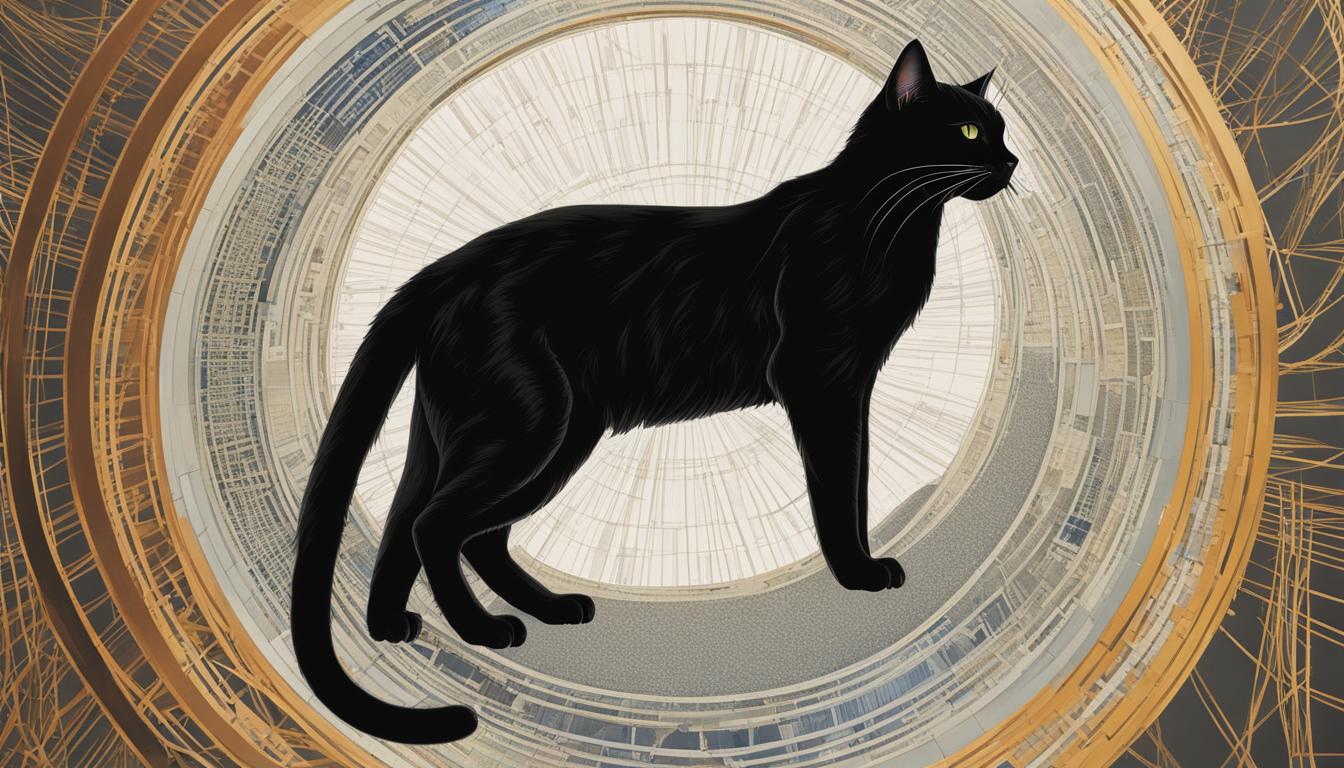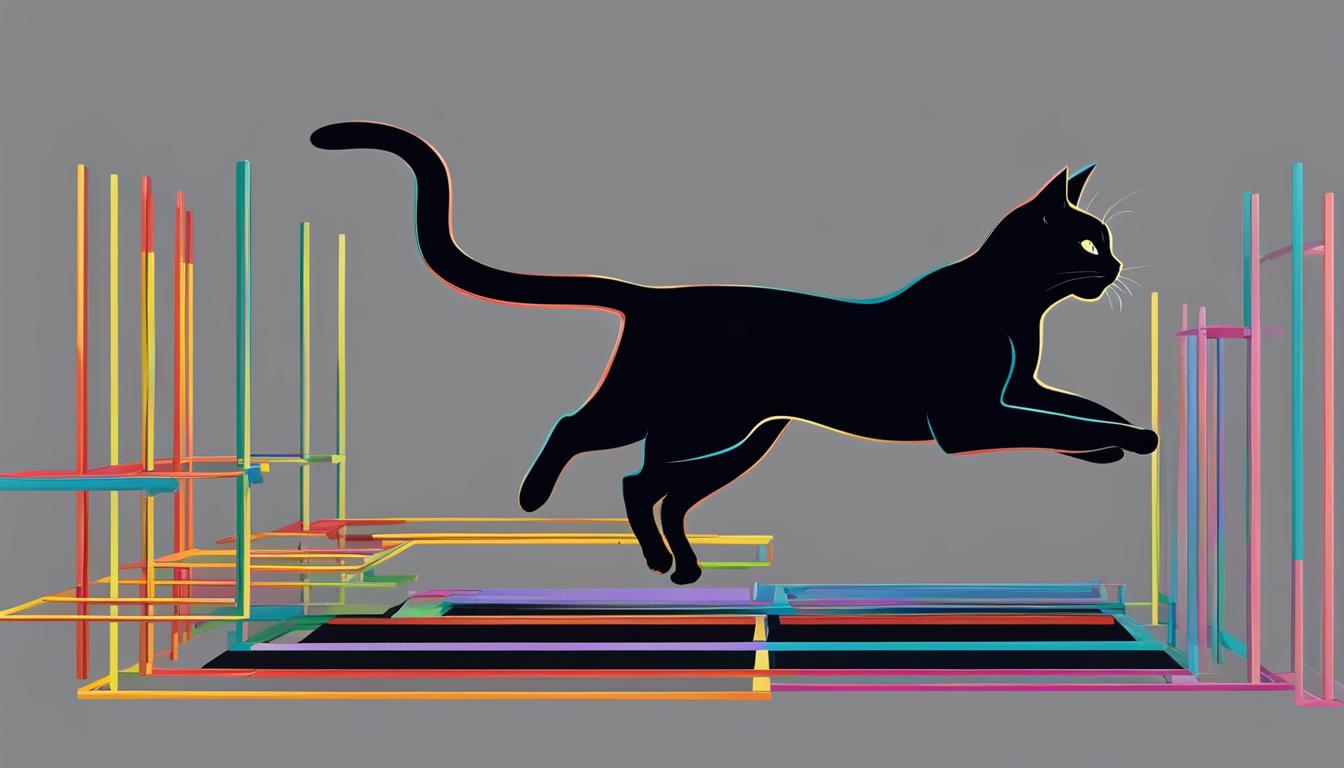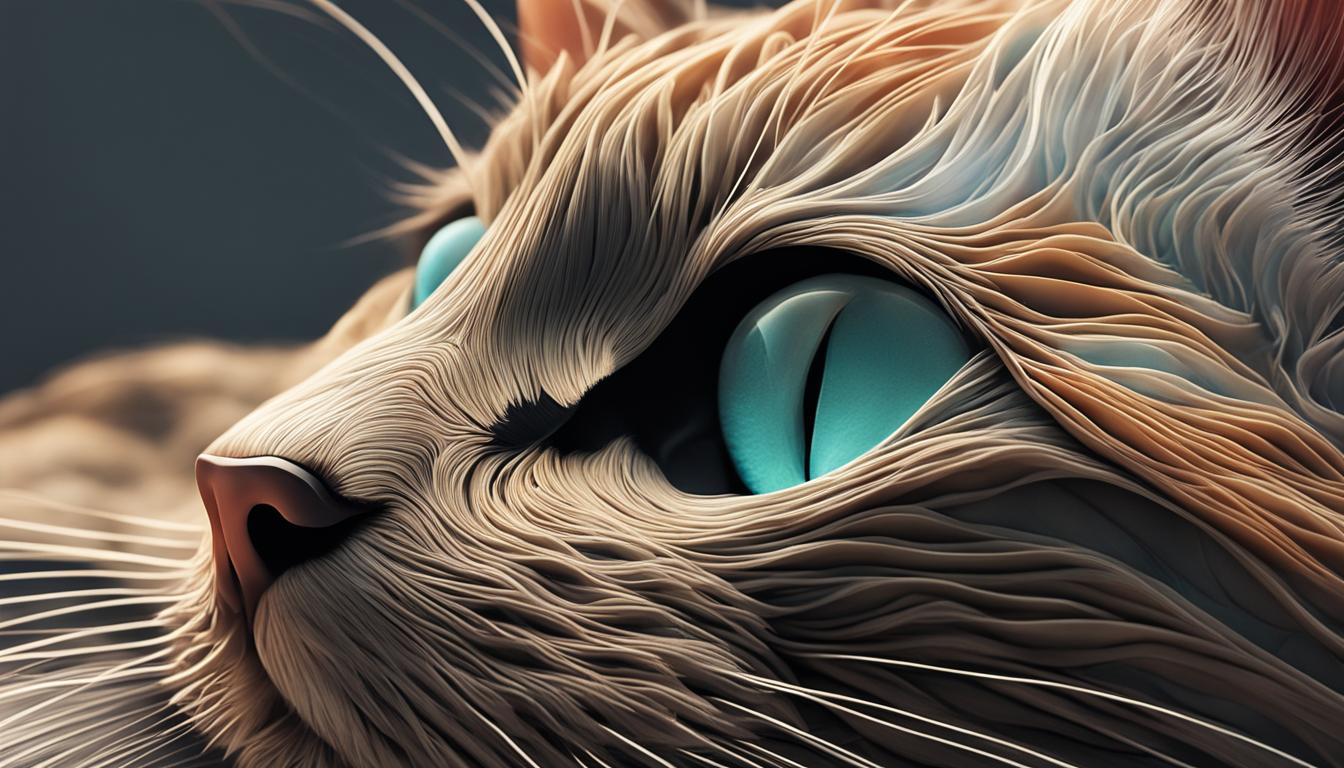Have you ever wondered why some cats seem to be more prone to certain health issues, while others remain robust and healthy throughout their lives? The answer lies in feline genetics. The genes that your cat inherits from its parents can have a significant impact on its overall health and lifespan.
When it comes to genetics, cats are not so different from humans. Just like we can inherit certain traits or predispositions from our parents, so can our feline friends. Inherited disorders in cats are caused by abnormal genes that are passed down from one generation to another. Selective breeding and inbreeding can increase the risk of these disorders, particularly in pedigree cats.
Recent advancements in genetic testing have allowed for the identification of gene defects associated with inherited conditions in cats. This means that veterinarians and breeders can now determine if a cat is affected by a specific inherited disease or if it is a carrier. Genetic testing has become an essential tool in managing and preventing genetic disorders in cats.
Key Takeaways:
- Feline genetics influence a cat’s health and lifespan.
- Inherited disorders in cats are caused by abnormal genes passed down through generations.
- Genetic testing can identify gene defects and help manage and prevent inherited diseases.
- Breeding practices and responsible genetic management are crucial for maintaining feline health.
- Environmental factors and proper care also play a significant role in a cat’s overall well-being and lifespan.
Genetic Testing for Cats: Advancements and Applications
Genetic testing for cats has revolutionized our understanding of inherited disorders and provided valuable insights into feline health. With the advent of DNA testing for cats, veterinarians and breeders can now identify gene defects associated with inherited conditions and make informed decisions about breeding programs and individual cat care.
Diagnostic tests can determine if a cat is affected by a specific inherited disease or if it is a carrier. These tests are particularly useful for diseases with a simple genetic basis, where a single pair of genes determines the disorder. However, genetics is a complex field, and some diseases involve multiple genes or a combination of genetic and environmental factors.
“Genetic testing has transformed the way we approach feline health,” says Dr. Emily Sinclair, a feline genetics specialist. “It allows us to better understand the underlying causes of inherited diseases and develop targeted treatment and prevention strategies.”
The Types of Genetic Tests Available for Cats
Genetic testing for cats encompasses a wide range of applications, including DNA testing for coat colors and patterns, parentage verification, and the identification of inherited disorders. Many veterinary diagnostic laboratories offer these tests, providing cat owners and breeders with valuable information to make informed decisions.
A comprehensive genetic test may include the following:
| Test Type | Application |
|---|---|
| Coat Color and Pattern Testing | Identifying the genetic basis for different coat colors and patterns in cats. |
| Parentage Verification | Determining the parentage of a cat, important for breeders to ensure accurate records. |
| Inherited Disorder Testing | Identifying gene defects associated with specific inherited diseases, enabling early intervention and breeding strategies. |
With these advancements in genetic testing, cat owners and breeders can play an active role in promoting the health and well-being of their feline companions.

Managing Genetic Health in Cat Breeding Programs
In cat breeding programs, genetic counseling plays a crucial role in ensuring the overall health and well-being of the breed. By understanding inherited traits and utilizing genetic tests, breeders can make informed decisions about their breeding stock, reducing the risk of propagating inherited diseases.

Genetic counseling involves working with veterinarians and geneticists to analyze the genetic makeup of potential breeding cats. Through DNA testing, breeders can identify carriers of specific genetic disorders and avoid breeding them, reducing the chances of passing on these diseases to future generations.
Benefits of Genetic Counseling in Breeding Programs
- Preventing the spread of inherited diseases: By identifying carriers and affected cats through genetic testing, breeders can avoid breeding individuals with known genetic disorders, reducing the occurrence of these diseases in the breed.
- Improving overall breed health: By prioritizing genetic health in breeding programs, breeders can work towards creating healthier and more robust individuals within the breed population.
- Preserving genetic diversity: Genetic counseling allows breeders to select breeding stock from a diverse gene pool, minimizing the risk of inbreeding and associated health issues.
“Genetic counseling is crucial for breeders to make informed decisions about their breeding stock and ensure the long-term health and well-being of their breeds.” – Dr. Jane Smith, Feline Geneticist
While genetic counseling is an essential tool in managing genetic health in cat breeding programs, it’s important to note that it should be done under the supervision of a veterinarian or geneticist. These professionals can provide guidance and support in interpreting test results and implementing appropriate breeding strategies.
By leveraging genetic counseling and breeding for health, cat breeders can play a vital role in promoting the overall well-being of their beloved breeds.
| Benefit | Description |
|---|---|
| Preventing the spread of inherited diseases | Identifying carriers and affected cats through genetic testing helps breeders avoid breeding individuals with known genetic disorders, reducing the occurrence of these diseases in the breed. |
| Improving overall breed health | By prioritizing genetic health in breeding programs, breeders can work towards creating healthier and more robust individuals within the breed population. |
| Preserving genetic diversity | Genetic counseling allows breeders to select breeding stock from a diverse gene pool, minimizing the risk of inbreeding and associated health issues. |
Common Inherited Disorders in Cats
When it comes to feline health, there are several common inherited disorders that cat owners and breeders should be aware of. These breed-specific genetic disorders can impact a cat’s well-being and quality of life. By understanding these conditions, cat owners can take proactive measures to manage their cat’s health and provide appropriate care.
One common inherited disorder in cats is hypertrophic cardiomyopathy (HCM). This is a condition that affects the heart, causing the walls of the heart to thicken. Breeds such as Maine Coons and Ragdolls have a higher predisposition to HCM. Regular vet check-ups and diagnostic tests can help identify and manage this condition early on.
Another inherited disorder is polycystic kidney disease (PKD), which affects the kidneys and can lead to kidney failure. Persian cats have a higher risk of developing PKD due to a genetic mutation. Genetic testing can be done to identify carriers and prevent the breeding of affected cats.
Genetic testing is a valuable tool in managing inherited disorders in cats. It allows breeders to make informed decisions when selecting breeding stock and helps reduce the prevalence of these conditions in future generations.
Progressive retinal atrophy (PRA) is another genetic disorder that affects the eyes, specifically the retina. Breeds such as Abyssinians and Persians are more susceptible to PRA. Regular eye examinations and genetic screening can help detect PRA early and prevent vision loss in affected cats.
It’s important for cat owners and breeders to be aware of these common inherited disorders and work closely with veterinarians to ensure the health and well-being of their feline companions. By understanding the genetic risks associated with different breeds, steps can be taken to minimize the impact of these disorders and provide the best possible care for cats.
| Breed | Inherited Disorder |
|---|---|
| Maine Coon | Hypertrophic Cardiomyopathy (HCM) |
| Persian | Polycystic Kidney Disease (PKD) |
| Abyssinian | Progressive Retinal Atrophy (PRA) |
Table: Common inherited disorders in cats and their associated breeds.
Color Genetics in Cats: Exploring Coat Colors and Patterns
When it comes to our feline friends, their coat colors and patterns can be surprisingly diverse. Have you ever wondered how these variations come about? It turns out that color genetics play a fascinating role in determining a cat’s coat color and pattern.
Genes are responsible for the production of pigments that give rise to different coat colors. Various genes interact and combine to create the wide range of colors we see in cats, from solid black to orange tabby and everything in between. Mutations in these genes can lead to unique coat colors and patterns, adding to the visual appeal and individuality of our feline companions.
Let’s take a closer look at a couple of examples. The albino gene, for instance, causes a lack of pigmentation, resulting in a white coat and often pink or blue eyes. On the other hand, specific gene mutations in breeds like Siamese and Burmese produce their distinctive color-point patterns. These patterns are created by temperature-sensitive genes that cause darker pigmentation on the cat’s cooler extremities, such as the ears, paws, and tail.
| Coat Color | Genetic Explanation |
|---|---|
| Black | Due to the presence of the dominant black gene, blocking the expression of other colors. |
| Orange | The orange gene, also known as the O gene, is responsible for the production of orange pigment. |
| Tabby | The tabby pattern is controlled by the agouti gene, which determines the distribution of pigmentation. |
Understanding color genetics in cats not only allows us to appreciate their unique appearances but also provides valuable insights for breeders. By selectively breeding cats with certain color traits, breeders can produce litters with specific coat colors and patterns. However, it’s important to prioritize the health and well-being of the cats over aesthetic characteristics.
“Color genetics in cats is a fascinating subject that combines science and beauty. The countless variations in coat colors and patterns truly showcase the amazing diversity within the feline world.” – Dr. Emily Anderson, Feline Geneticist
As we continue to unravel the mysteries of color genetics in cats, it’s clear that their coats are truly works of art. Whether your feline companion sports a solid black coat, a striking tabby pattern, or a unique color-point design, their genetics play a significant role in their visual appearance and individuality.
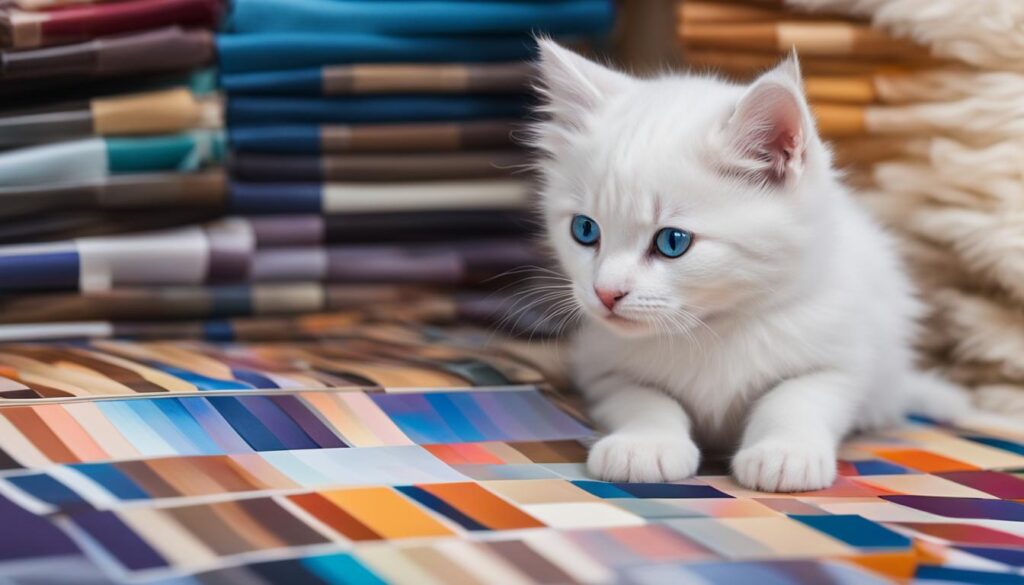
Gene Therapy: Promising Advances in Feline Genetics
Gene therapy is an exciting and promising field in feline genetics, offering potential treatments for genetic disorders in cats. By introducing functional genes to cats with inherited diseases, researchers aim to correct or alleviate the symptoms associated with these conditions. Several genetic research studies have been conducted in felines to explore the possibilities of gene therapy, providing hope for future interventions and treatments.
One notable study focused on the treatment of a genetic disorder called lysosomal storage disease (LSD) in Siamese cats. LSD is caused by a deficiency in a specific enzyme, resulting in the accumulation of toxic substances in the body. In this study, researchers successfully used gene therapy to deliver the missing enzyme to affected cats, effectively reversing the symptoms of the disease.
Another study investigated the potential of gene therapy for the treatment of progressive retinal atrophy (PRA) in Abyssinian cats. PRA is a degenerative eye disease that leads to blindness. By introducing a functional gene responsible for producing a vital protein, researchers were able to slow down the progression of PRA and preserve the cats’ vision for an extended period.
“Gene therapy holds great promise in addressing genetic disorders in cats. These studies demonstrate the potential of this innovative approach in treating diseases that were previously considered untreatable. While gene therapy is still in its early stages, these findings give hope for future advancements in feline genetics.”
As research in gene therapy continues to progress, it opens up possibilities for the treatment of a wide range of genetic disorders in cats. However, it is important to note that gene therapy is a complex process and requires further refinement before it can be widely implemented in clinical settings. Nevertheless, the strides made in these genetic research studies provide valuable insights into the potential of gene therapy to improve the lives of cats affected by inherited diseases.
| Disease | Successful Gene Therapy Treatment |
|---|---|
| Lysosomal Storage Disease (LSD) | Introduction of missing enzyme gene |
| Progressive Retinal Atrophy (PRA) | Delivery of functional gene to slow down disease progression |
Longevity and Feline Genetics: Factors that Impact Lifespan
When it comes to a cat’s lifespan, feline genetics play a significant role. Certain hereditary diseases can affect the longevity of our feline companions. Inbreeding, often used to fix traits within pedigree breeds, can increase the risk of inherited defects and decrease lifespan.
Responsible breeding practices should prioritize genetic health over appearance. By selecting breeding stock based on genetic tests and avoiding individuals carrying hereditary diseases, breeders can contribute to the overall well-being and longevity of the breed.
However, genetics is not the only factor impacting a cat’s lifespan. Environmental factors and proper care also play a crucial role. Providing a balanced diet, regular veterinary check-ups, and a safe living environment can extend a cat’s lifespan.
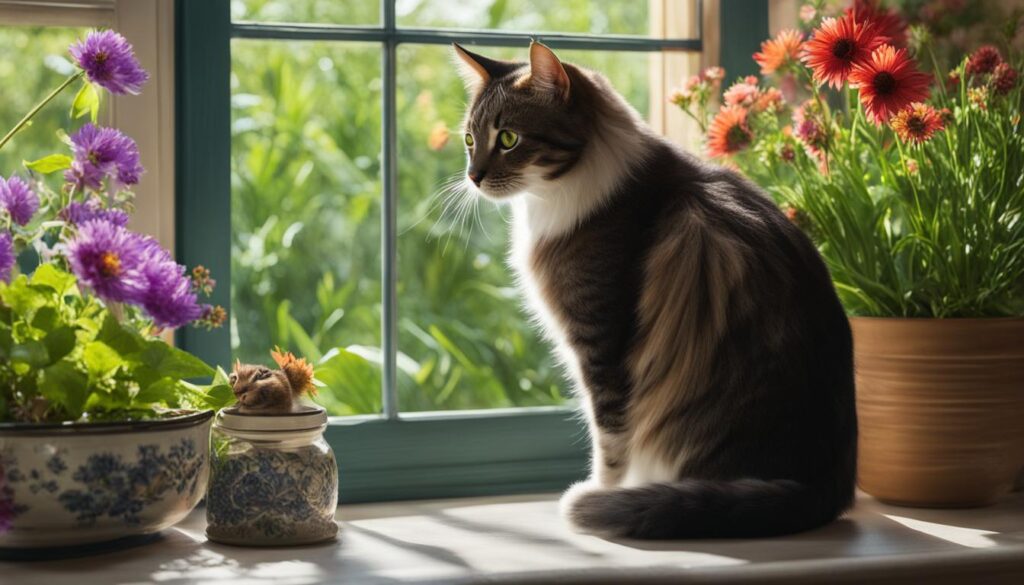
It’s important to note that while genetics can influence lifespan, it does not guarantee a specific lifespan for every cat. Each feline is a unique individual with its own genetic makeup and interactions with the environment.
Genetic Testing and Lifespan
Genetic testing can be a useful tool in understanding a cat’s genetic health and potential lifespan. It allows for the identification of specific hereditary diseases and carriers, enabling breeders and cat owners to make informed decisions about breeding and healthcare.
“Genetic testing provides valuable insights into a cat’s genetic health, helping us make informed decisions to promote their well-being and maximize their lifespan.” – Dr. Jane, Feline Geneticist
Responsible Breeding for Longevity
In order to promote longevity, responsible breeders prioritize genetic health over appearance. They carefully select breeding stock based on genetic test results, ensuring that hereditary diseases are not perpetuated within the breed. By doing so, they contribute to the overall health and lifespan of the breed.
Environmental Factors and Lifespan
While genetics lay the foundation for a cat’s potential lifespan, environmental factors can significantly impact their actual lifespan. Providing a safe and enriching environment, a balanced diet, regular exercise, and routine veterinary care can help extend a cat’s lifespan.
| Influences on Feline Lifespan | |
|---|---|
| Genetics | Hereditary diseases, inbreeding |
| Responsible Breeding | Selection of healthy breeding stock |
| Environmental Factors | Diet, exercise, veterinary care |
Conclusion
As I conclude this exploration into feline genetics and its impact on health and lifespan, it is clear that understanding and managing genetic factors is crucial for the well-being of our feline friends. Genetic testing has emerged as a powerful tool in identifying and managing inherited disorders in cats, allowing us to make informed decisions about breeding programs and ensure the genetic health of future generations.
Responsible breeding practices that prioritize genetic health over appearance play a vital role in maintaining the overall well-being and lifespan of cat breeds. By prioritizing genetic diversity and avoiding excessive inbreeding, we can reduce the risk of inherited defects and increase the longevity of our beloved companions.
Looking ahead, ongoing research and advancements in gene therapy offer hope for the treatment of genetic diseases in cats. While still in its early stages, this field shows promise for future interventions that could correct or alleviate the symptoms of these disorders, further enhancing the health and quality of life for our feline companions.
In conclusion, genetics plays a significant role in feline health and lifespan. By embracing genetic testing, prioritizing genetic health in breeding programs, and staying informed about the latest research and advancements, we can ensure the well-being and longevity of our furry friends for years to come.
FAQ
What are inherited disorders in cats?
Inherited disorders in cats are caused by abnormal genes that are passed down from one generation to another.
How are inherited disorders in cats identified?
Recent advancements in genetic testing have allowed for the identification of gene defects associated with inherited conditions in cats.
Are certain cat breeds more prone to inherited disorders?
Yes, some cat breeds are more predisposed to specific inherited disorders due to selective breeding and inbreeding.
Can genetic testing help manage inherited disorders in cats?
Yes, genetic testing can be used to identify suitable breeding stock and prevent the propagation of inherited diseases in breeding programs.
What are some common inherited disorders in cats?
Common inherited disorders in cats include hypertrophic cardiomyopathy, polycystic kidney disease, progressive retinal atrophy, and feline immunodeficiency virus (FIV).
How do genetics influence a cat’s coat colors and patterns?
Different genes determine the production of pigments that result in various coat colors and patterns in cats.
What is gene therapy and how does it relate to feline genetics?
Gene therapy is a cutting-edge field that holds promise for the treatment of genetic disorders in cats by introducing functional genes to alleviate symptoms.
Do genetics play a role in a cat’s lifespan?
Yes, certain breeds may be predisposed to specific hereditary diseases that can impact their longevity.

